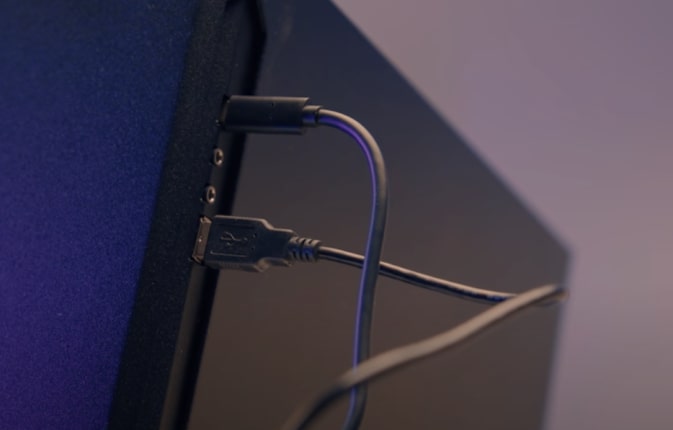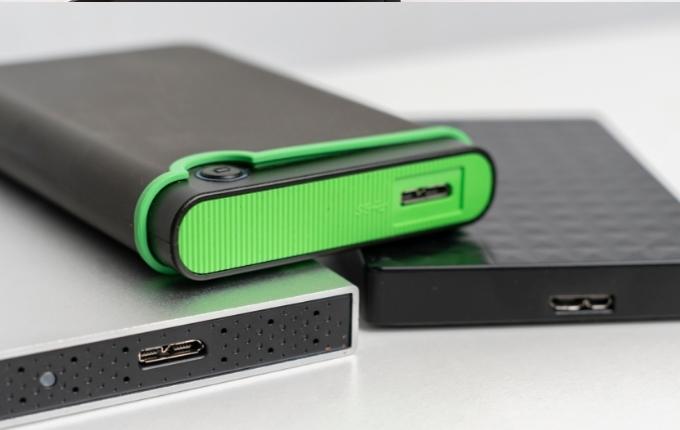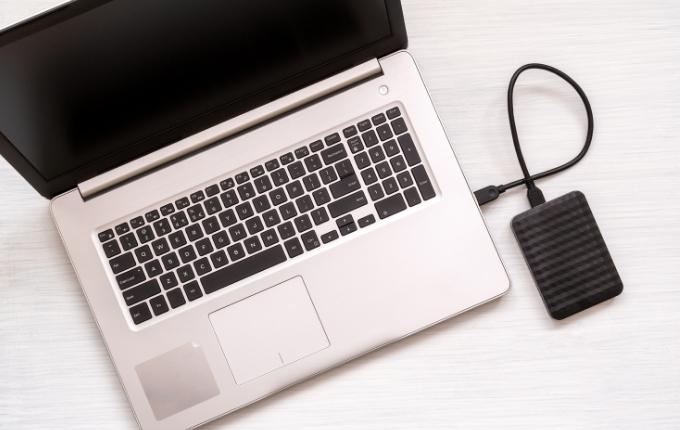What are External Hard Drives used for? 6 Use Cases
If you’ve reached this post, you are probably curious about what an external drive is and how it can be used. Or maybe you know them but want to know more about them for specific purposes such as backup, data storage, or expanding your computer’s storage capacity.
This time, I will summarize what an external hard disk is, its uses, and compare it with a regular hard drive.
What is an External Hard drive, And How Is It Different than a Normal drive?
Hard drives are the essential part of computers to store data and files, but external hard drives are those that can function outside the PC and come with an embedded casing.
Unlike normal drives, where some knowledge is required from opening the PC case to connecting SATA or PCIe connector or fitting on M.2 slot.
Whereas external hard drives are much easier to use, as they have a connecting port and just need a cable (either USB, Type C or thunderbolt) to connect with one of the connections on the PC Case.

It can easily be taken from one PC to another desktop or laptop, making them detachable and portable like a pen drive.
The capacity of external HDDs has increased a lot today, such as 20TB, and models with 1TB (terabyte) or more are mainstream.
Remember, there are external drives of two types:
- HDD (Hard Disk Drive): This is a conventional hard drive with a magnetic spinning disk inside.
- SSD (Solid State Drive): This type of external drive uses NAND flash memory chips instead of something similar to an SD card.
What are external hard drives used for? 6 Use Case
What are some ways to make effective use of external hard disks? Here are the 7 ways to use external hard disks.
1. Storage Expansion
External drives are primarily used to expand the computer storage, especially if you have a desktop PC with no drive bays left or a laptop with no room for additional internal drives.
As you accumulate more files, documents, photos, videos, and applications, your internal storage will run out of free space. External drives provide an easy way to expand your storage in the same way as the C drive or D drive of your Windows, preventing it from slowing down.
2. Data Hoarding and Backup
External hard drives are also commonly used for data hoarding and backup. With their large storage capacity, you can store all your important files, archives, and vast amounts of data, including media, software, records, or datasets, in an external drive as a backup copy.
This is rather convenient if you don’t want to carry multiple USB pen drives or similar devices (with smaller storage capacities) around.
If you want to track changes made in these files over time, you can enable version control using an automated backup feature.
By backing up your files onto an external drive, it assures that even if something happens to your computer or device, your important data will still be safe and accessible.
3. Privacy and Security
External hard drives provide a layer of privacy and security for your data to carry with you. Unlike cloud storage, after disconnecting an external drive, it becomes offline and thus more resistant to hacking.
Do you know ~ Some external drives have built-in encryption software, letting you secure your data with a password. This means that even if someone steals your drive, they cannot access the files until they know the correct password.
Privacy-conscious users can have complete control of their private files, documents, and sensitive data offline by keeping secure from online threats.
4. Gaming Libraries
External hard drives are also used to manage large gaming libraries, something particularly useful for console gamers like Xbox or PlayStation who want to store and play additional titles without overloading their limited internal storage.
Transferring your game files onto the external drive allows you to free up space on your device and still have quick access to your games. Plus, with the portability of external drives, you can readily carry your entire game library wherever you go, such as to attend gaming events.

With external hard drive, there are no more thoughts over which games to uninstall to make space for new ones.
5. Content Creation and Editing
External hard drives are handy for content creators and editors who need to handle their continuously growing storage of high-resolution photos, videos, and audio recordings. These drives provide the speed and space required to store multimedia files & projects.
It is beneficial for photographers and videographers who often need to archive their work for long periods as well as transport their work from one device to another since it is portable.

6. DIY Network-Attached Storage (NAS)
With external HDDs, you build your own DIY Network-Attached Storage (NAS). Open-source software like FreeNAS or OpenMediaVault helps you to create a cost-effective, customizable network storage solution.
You can start using a single or multiple external drives with a small computer that runs custom firmware and connects them to your router for easy access and sharing of files between all your wired or WiFi connected devices. Thereby allowing you to stream media, backup or sync files, and keep a remote copy of your data. It’s like having your cloud under your control.
FAQs
Can I use an external hard drive with my smartphone?
Yes, you can use an external hard drive with your smartphone if it has a USB-C port or supports OTG (On-The-Go) function. Also, make sure that the hard drive is formatted in a compatible file system, such as the FAT32/Ext3/Ext4 file system, to recognize it by your phone.
What is the maximum storage capacity of an external drive?
Currently, some external HDDs can hold up to 20 TB of data in the market, while external SSDs type available up to 4 TB. With advancements in technology, it is expected to have even larger capacities.
Is it safe to store important data on an external hard drive?
It is generally safe to store important data on an external hard drive. However, handling and storing your external hard drive properly is vital to avoid any physical damage that could lead to data loss.
What are the types of external hard drives?
There are two types: HDD (Hard Disk Drive) and SSD (Solid-State Drive). HDDs are the traditional type that uses spinning disks to store data, have relatively larger storage capacities, and are more affordable. SSDs, on the other hand, use flash memory technology and have no moving parts, making them faster and more durable than HDDs. However, they are expensive and have smaller storage capacities.
Which type of external hard drive is best for me?
The best type of external hard drive for you depends on your specific needs. External HDDs are a good option if you need a large storage capacity at an affordable price. However, if speed and durability are important, SSDs for computer are a better choice despite being more expensive.
[Related]
